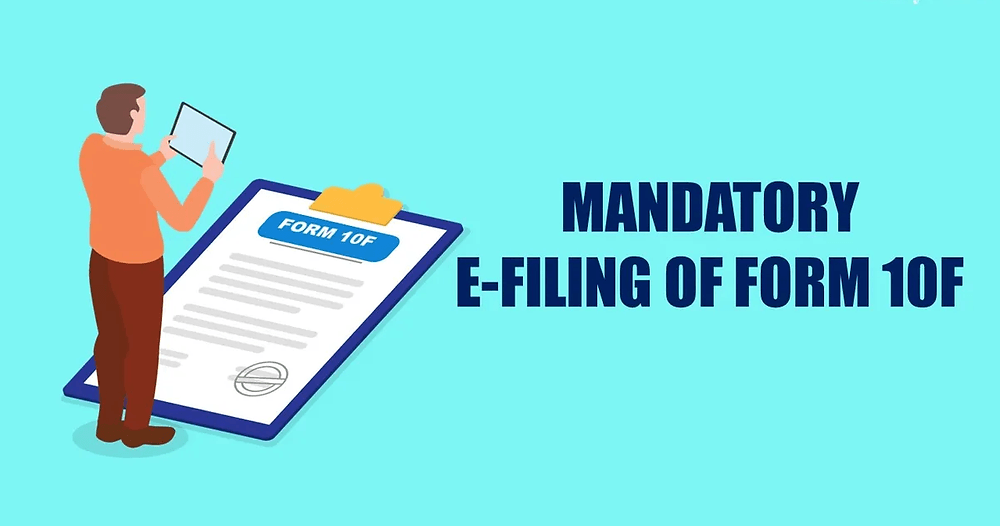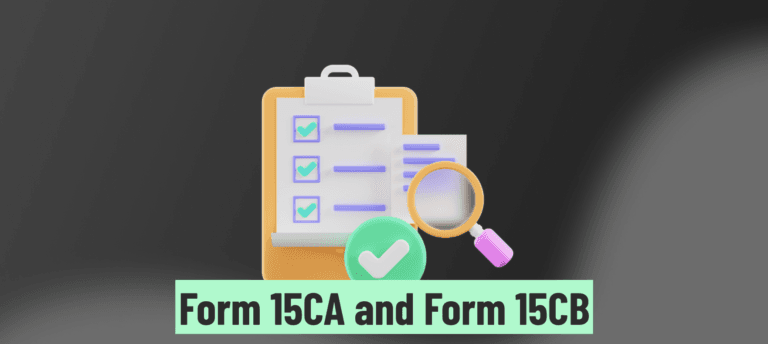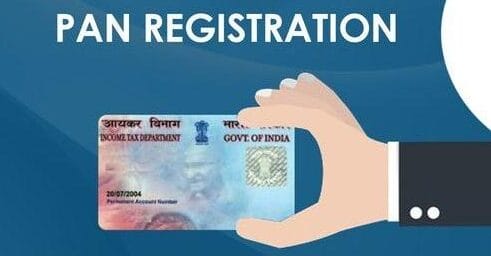Form 10F pertains to the declaration that a taxpayer needs to furnish under Section 90 or Section 90A of the Income Tax Act, 1961, for claiming the benefits of Double Taxation Avoidance Agreements (DTAA). Here’s a comprehensive overview of Form 10F and its compliances:
What is Form 10F?
Form 10F is a declaration that a taxpayer (resident of India) needs to provide to the deductor (typically, the payer of income) to claim relief or benefit under DTAA. This form essentially confirms that the taxpayer is a resident of India and is eligible to claim the benefits under the relevant DTAA with another country.
Key Points of Form 10F Compliances
1. Purpose
- The form is used to avoid or lower the rate of TDS (Tax Deducted at Source) on income earned in a foreign country where India has a DTAA.
- It ensures that the taxpayer can benefit from provisions like reduced rates of withholding tax on income such as interest, dividends, royalties, etc.
2. Contents of Form 10F
- Personal details of the taxpayer such as name, address, PAN (Permanent Account Number), etc.
- Details of the taxpayer’s tax residency status in India.
- Particulars of the DTAA under which the taxpayer wishes to claim benefits (country name, article number, nature of income, applicable rate of TDS).
- Declaration confirming that the information provided is true and correct to the best of the taxpayer’s knowledge and belief.
3. Submission and Timelines
- Form 10F should be submitted to the deductor (payer) before the income payment is made or at the time of credit of income, whichever is earlier.
- It should be submitted each year for each income type (e.g., interest, dividends) for which DTAA benefits are claimed.
4. Verification by Deductor
- The deductor will verify the details provided in Form 10F and consider them while deducting TDS on payments to the taxpayer.
- They may rely on the form to apply the beneficial provisions of DTAA while computing the amount of TDS.
5. Retention of Form 10F
- Both the taxpayer and the deductor should retain a copy of Form 10F for their records.
- The taxpayer may need to produce this form during tax assessments or audits to substantiate their claim for DTAA benefits.
6. Consequences of Non-compliance
- Failure to submit Form 10F may result in the deductor applying higher TDS rates prescribed under domestic tax laws rather than the beneficial rates under DTAA.
- This can lead to excess tax deduction and subsequent refund claims, which may involve additional administrative efforts and delays.
Form 10F is crucial for taxpayers looking to benefit from DTAA provisions to avoid double taxation and reduce the tax burden on income earned abroad. Ensuring timely and accurate submission of Form 10F is essential to avail of these benefits and comply with Indian tax regulations effectively.
At Ujjwal Gupta & Co
We, at Ujjwal Gupta & Co, are dedicated to delivering personalized, high-quality solutions tailored to meet your financial and business needs. With our team of professionals and a client-first approach, we ensure that every challenge is met with expert guidance and strategic insight.
We are dedicated to ensuring your business’s success by providing best service practice available in the industry and that too at a cost effective pricing. Our team of experts is excited to work with you and provide the support you need to thrive in the Indian business landscape.
Our only motive is to create Value for Our Clients and accordingly, have a Client Value System at our Office.
So, let us help you navigate the complexities of finance and compliance, empowering you to focus on what matters most — growing your business. Get in touch today, and take the first step towards financial peace of mind.
Form 10F is a certificate required under Indian tax law for non-resident taxpayers who wish to claim benefits under the Double Taxation Avoidance Agreement (DTAA) between India and their country of residence. It provides details about the non-resident’s tax residency status, which is essential for claiming reduced withholding tax rates.
Non-resident individuals, companies, or entities receiving income from Indian sources, such as:
- Foreign companies earning dividends, royalties, or fees for technical services.
- Non-resident individuals earning income from Indian sources.
- Entities that seek to benefit from DTAAs with India.
Form 10F requires the following information:
- Name of the non-resident taxpayer.
- Address in the country of residence.
- Tax residency status (details of tax identification number).
- Details of the income for which the form is being submitted.
- Signature and date of the person authorized to sign the form.
Form 10F is not mandatory for all non-residents but is essential when claiming benefits under the DTAA. It is required to be submitted to the Indian tax authorities when filing for reduced withholding tax rates or when filing Form 15CA/15CB for remittances to non-residents.
Form 10F can be submitted in a physical format or electronically, depending on the requirements of the Indian tax authorities. Non-residents generally provide this form to the payer (e.g., Indian company) making the payment, who will then retain it for their records and tax compliance.
Form 10F is valid for the financial year in which it is issued. Non-residents may need to renew the form annually to claim benefits under the DTAA for subsequent years, as it reflects the taxpayer’s residency status for that particular financial year.
Failure to submit Form 10F may result in:
- Higher withholding tax rates on payments made to non-residents.
- Denial of benefits under the DTAA, leading to double taxation.
- Potential disputes with Indian tax authorities regarding tax residency status.
Form 10F cannot typically be filed retroactively for prior years. It must be provided for the financial year in which the income is earned and for which benefits under the DTAA are claimed. Non-residents must ensure timely submission to avoid complications.
While Form 10F itself is a self-declaration, it is advisable to retain supporting documents that may include:
- Tax Residency Certificate (TRC) issued by the tax authorities of the country of residence.
- Proof of identity of the non-resident (e.g., passport).
- Income-related documents (invoices, agreements) to substantiate the income claimed under the DTAA.
Form 10F is often submitted along with Form 15CA (a declaration of remittance) and Form 15CB (a certificate by a Chartered Accountant). These forms are used to ensure that the appropriate withholding tax rates are applied to payments made to non-residents. Form 10F helps substantiate the claim for reduced tax rates under the DTAA in these forms.
Why Choose UGC?

Client Centric Approach
Client is the key driver of our service offerings. Our approach to service offerings is based on a client centric and customized approach. Our specialized teams are a mix of technical and industry experience in order to serve clientele for their specific needs.

Team Work
We have built high performing teams supported by strong work ethic. Our team is a mix of experts, professionals and support staff from technical and varied academic, social and ethnic backgrounds. We believe diversification plays a vital role in motivating the team.

Quick Turnaround
We always endeavour for a quick turnaround time to serve our clientele. We are supported by an experienced and client focussed support teams to offer timely services to our clientele. In case of any business exigencies and time sensitive service requirements, you can always count on us.

Open Communications
We believe that open communication is the core principle in order to demonstrate trust, build long lasting and valuable relationships with clientele. We are committed to ensuring transparency in communication, service offerings and delivery. We provide professional services to our clients.

Client Value System
We value for the Client time and thus, we offer services that are value for money. Quality professional services are provided to our clients, so that they are able to achieve their desired results. We are a quality trademark in the industry and thus, our clients count on us always.

Quality in Delivering Work
Our service offerings are driven by quality and reviews at every level. We strive to provide a qualitative and value-added delivery to our clientele. At all times, we endeavour to provide exceptional client service by meeting client expectations and driving client satisfaction.


















